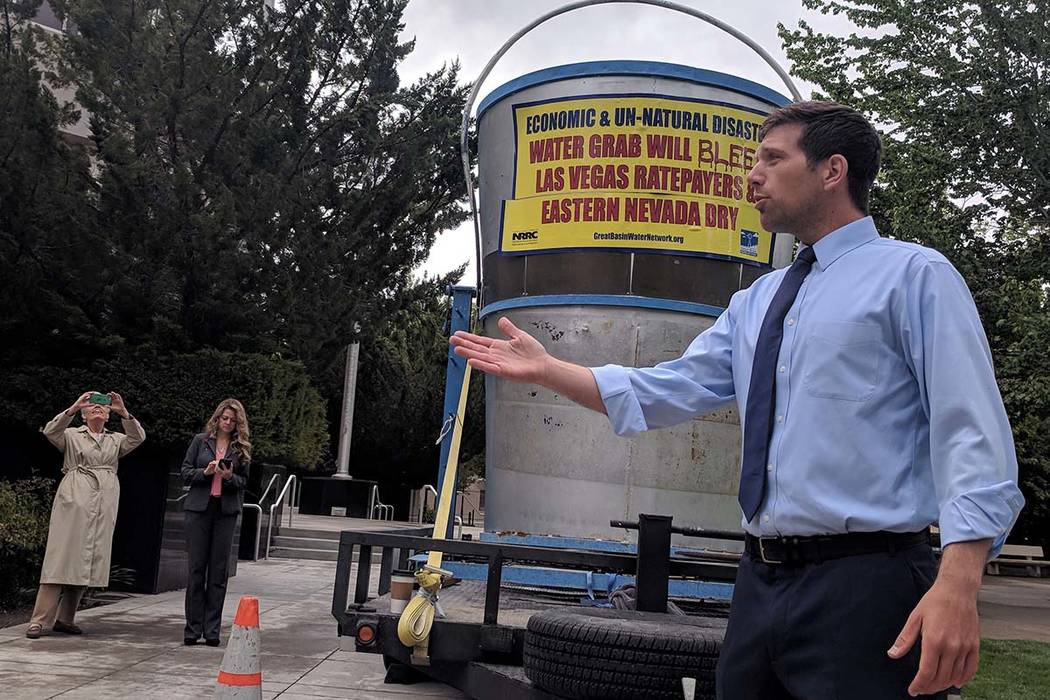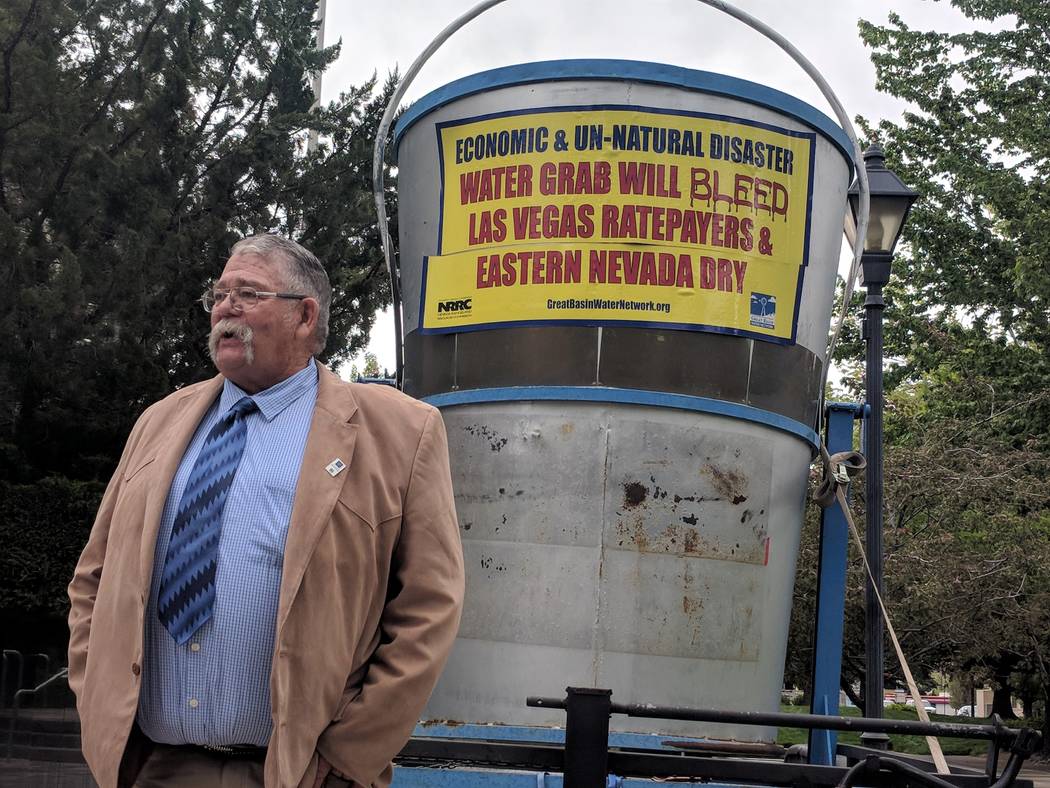Deadline fast approaching for controversial water bill
CARSON CITY — A little more than a month ago, a controversial water bill seemed like it had done the impossible by getting environmental and rural groups to drop their fervent opposition.
But after that brief moment of Kumbaya, some of those same groups are hoping the bill sinks in the final days of the Nevada Legislature, warning that it could lead to a potential urban water grab and raising familiar concerns over a long-standing plan to pipe water from eastern Nevada to the Las Vegas Valley.
The bill, Assembly Bill 30, would clarify how the state engineer is able to use monitoring, management and mitigation plans, or so-called 3m plans, changes that the state hopes would help stave off the lawsuits that often follow decisions on water permits.
“It’s a desperately needed measure to help us have more clarity in what tools we use to manage water in Nevada, and we’ll be more defensible in the courts going forward,” Nevada Department of Conservation and Natural Resources Director Brad Crowell said in an interview Wednesday.
But opponents say the changes would upend Nevada’s long-standing water law by allowing the state to consider issuing permits when there might be a conflict between senior and junior water rights holders, which some said would make for an easier path for the Southern Nevada Water Authority’s long-standing proposal to build a 300-mile pipeline to pump groundwater from eastern Nevada to Las Vegas that would come with an estimated price tag of $15 billion.
“The policy of 3m means more water going to big and powerful entities that currently cannot get water under Nevada water law,” Abigail Johnson, a board member for Great Basin Water Network, said Thursday at a demonstration in front of the Legislature to show opposition to the bill.
That demonstration included a giant bucket in front of the Legislature that was driven to Carson City from Baker that has been a symbol of opposition to the pipeline project.
That state engineer blocked the water authority’s plan for the pipeline in September, a decision that the authority quickly filed a lawsuit over. Great Basin Water Network and 58 other organizations also sued over the decision, but instead they took aim at the authority’s 3m plan, and similar suits were filed by three tribal organizations, two Utah counties and the Church of Jesus Christ of Latter-day Saints, which operates a cattle ranch in one of the four valleys targeted by the water authority.
That rhetoric about the pipeline, Crowell said, has become the biggest impediment for the bill.
“It’s our view that AB30 does not have an impact on the pipeline,” Crowell said. “If certain stakeholders want to continue to make it all about the pipeline, then it doesn’t leave any room for constructive policy discussion. “
Laurie Thom, chairman of the Yerington Paiute Tribe, said during Thursday’s demonstration that she wants the tribes to be more involved in the conversations when it comes to 3m plans.
“We want to make sure that AB30 includes the tribes, our voice and the language that we need to protect the resources that we believe are so powerful to us,” Thom said.
State Sen. Pete Goicoechea, R-Eureka, said AB30 is “not truly a pipeline bill,” but added that he is concerned about the long-term impacts that 3m plans could have across the state.
But, Goicoechea said he believes that the bills are “getting diluted down to where we can probably live with them.”
Compromise, until there wasn’t
At the bill’s first hearing, conservationists and rural groups panned the proposal as a way to greenlight the eastern Nevada pipeline project.
But after weeks of meetings with those stakeholders, a compromise seemed to be in place as several of those groups came back to the table to say they had changed their stance from opposition to neutral.
But that compromise didn’t last long.
After passing through the Assembly, the bill went through numerous rewrites and amendments in the Senate, and tensions began to flare as more groups attempted to tweak the bill’s language, including the Southern Nevada Water Authority, which submitted an amendment that was not considered by the state because the natural resources department believed it would have upended the compromise that had been struck previously.
That tension culminated in a surprise work session on the bill last week in which Senate Natural Resources Chairwoman Sen. Melanie Scheible, D-Las Vegas, brought out an easel in front of the other committee members to physically hash things out.
But when the Senate committee voted on the bill on Friday, it did so without any of the changes to the bill that came over from the Assembly.
Future uncertain
And for now the bill’s fate remains unclear.
AB30 is currently in limbo, but has until midnight Friday to be approved by the Senate to stay alive, unless it’s granted a waiver or brought back in the final days of the session via an amendment or as an emergency measure.
Behind the scenes, discussions between all sides have started to center on forming a working group to iron out the details on how best to implement 3m plans and then come back in the 2021 Legislature with a new bill.
Crowell said he is continuing to work with interested parties to see if there is a path forward on the bill this session, and that he’s not opposed to having those discussions over the interim — so long as he can be assured that constructive conversations will be had.
“Those discussions over the interim are going to be limited to those who can engage constructively and proactively, not those who are going to use it to inflame the pipeline politics,” Crowell said.
“If it’s merely just kicking the can down the road where we’ll be in the same place we are now next session, it’s not worthwhile,” Crowell said.
Contact Capital Bureau Chief Colton Lochhead@reviewjournal.com or 775-461-3820. Follow @ColtonLochhead on Twitter.



















